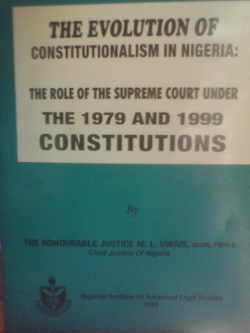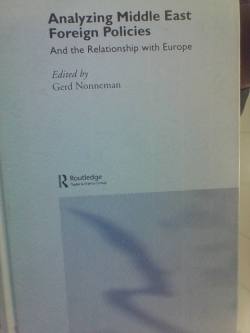CASS Series on Peacekeeping The Evolution of US Peacekeeping Policy Under Clinton: A Fairweather Friend?

Buy online ($)
Type
Book
Authors
Mac Kinnon ( Michaek G. )
ISBN 10
0714649376
ISBN 13
9780714644974
Category
327.73-International Relations-United States
[ Browse Items ]
Publication Year
1999
Publisher
FRANK CASS, United States
Pages
203
Subject
United Nations -- Armed Forces; International police; United States -- Armed Forces -- Foreign countries; United States -- Politics and government --
Tags
Series Name
Abstract
This Study examines the dynamic process through which the Clinton administration developed a policy towards UN peace support operations and goes on to explain why it was so different in substance and spirit from what was originally intended.
Based on primary sources and interviews the author examines four main factors which shaped the development of policy: the Executive branch; the bureaucracies (the State Department and the Department of Defense); Congress; and public opinion. The four factors are assessed through the lens of a 'political process model', which presents government decision-making as designed or influenced by a combination of several so-called 'power centres' or political actors, such as the executive, advisers, the media and so on.
At the heart of the Clinton administration's backtracking lay a divergence between the Executive and Congress over foreign policy in general , but US policy towards the UN and the use of American military abroad in particular. Rather than defend the 50-year trend towards presidential prerogatives in these policy areas, Clinton abandoned a proactive UN policy in order to reduce Congressional criticism and husband his political capital for a domestic policy initiative in order to secure re-election in 1966.
Based on primary sources and interviews the author examines four main factors which shaped the development of policy: the Executive branch; the bureaucracies (the State Department and the Department of Defense); Congress; and public opinion. The four factors are assessed through the lens of a 'political process model', which presents government decision-making as designed or influenced by a combination of several so-called 'power centres' or political actors, such as the executive, advisers, the media and so on.
At the heart of the Clinton administration's backtracking lay a divergence between the Executive and Congress over foreign policy in general , but US policy towards the UN and the use of American military abroad in particular. Rather than defend the 50-year trend towards presidential prerogatives in these policy areas, Clinton abandoned a proactive UN policy in order to reduce Congressional criticism and husband his political capital for a domestic policy initiative in order to secure re-election in 1966.
Description
This fascinating study examines the dynamic process through which the Clinton administration developed a policy towards UN peace support operations. The author addresses the fundamental question: what factors influenced the shift in US policy towards the United Nations and its peace support operations and which factors were clearly dominant?Based on primary sources and interviews with political personalities and officials, the author examines four main factors which shaped the development of policy: the Executive branch, the bureaucracies (the State Department and Department of Defense), Congress and public opinion. These provide the basis for the core chapters of the book, which also contains a chapter on methodology and a chapter of summary analysis. - from Amzon
Biblio Notes
CONTENTS
1. The Methodology of Applying the Political Process Model .................... P. 1
2. The White House Views on Peace Operations .................................... P. 13
3. The Views and Interest of the State Department and the Pentagon ..... P. 38
4. Congress into the Fray .................................................................. P. 62
5. In the Name of Public Opinion ........................................................ P. 74
6. The Deciding Factor ...................................................................... P. 91
7. Conclusions and Implication ........................................................... P. 105
1. The Methodology of Applying the Political Process Model .................... P. 1
2. The White House Views on Peace Operations .................................... P. 13
3. The Views and Interest of the State Department and the Pentagon ..... P. 38
4. Congress into the Fray .................................................................. P. 62
5. In the Name of Public Opinion ........................................................ P. 74
6. The Deciding Factor ...................................................................... P. 91
7. Conclusions and Implication ........................................................... P. 105
Number of Copies
2
| Library | Accession No | Call No | Copy No | Edition | Location | Availability |
|---|---|---|---|---|---|---|
| Main | 162 |
327.73 MAC |
1 | Yes | ||
| Main | 192 |
327.73 MAC |
2 | Yes |




